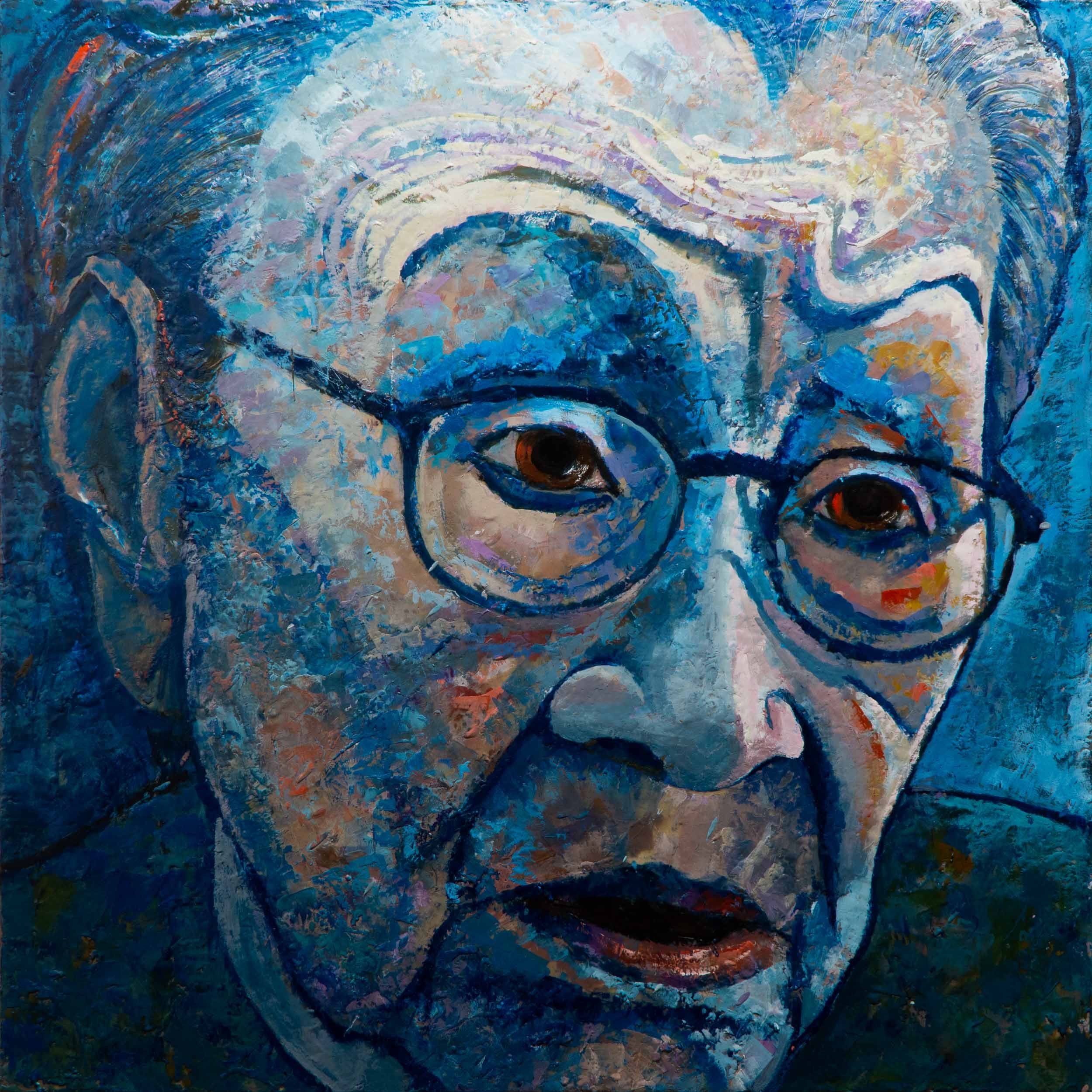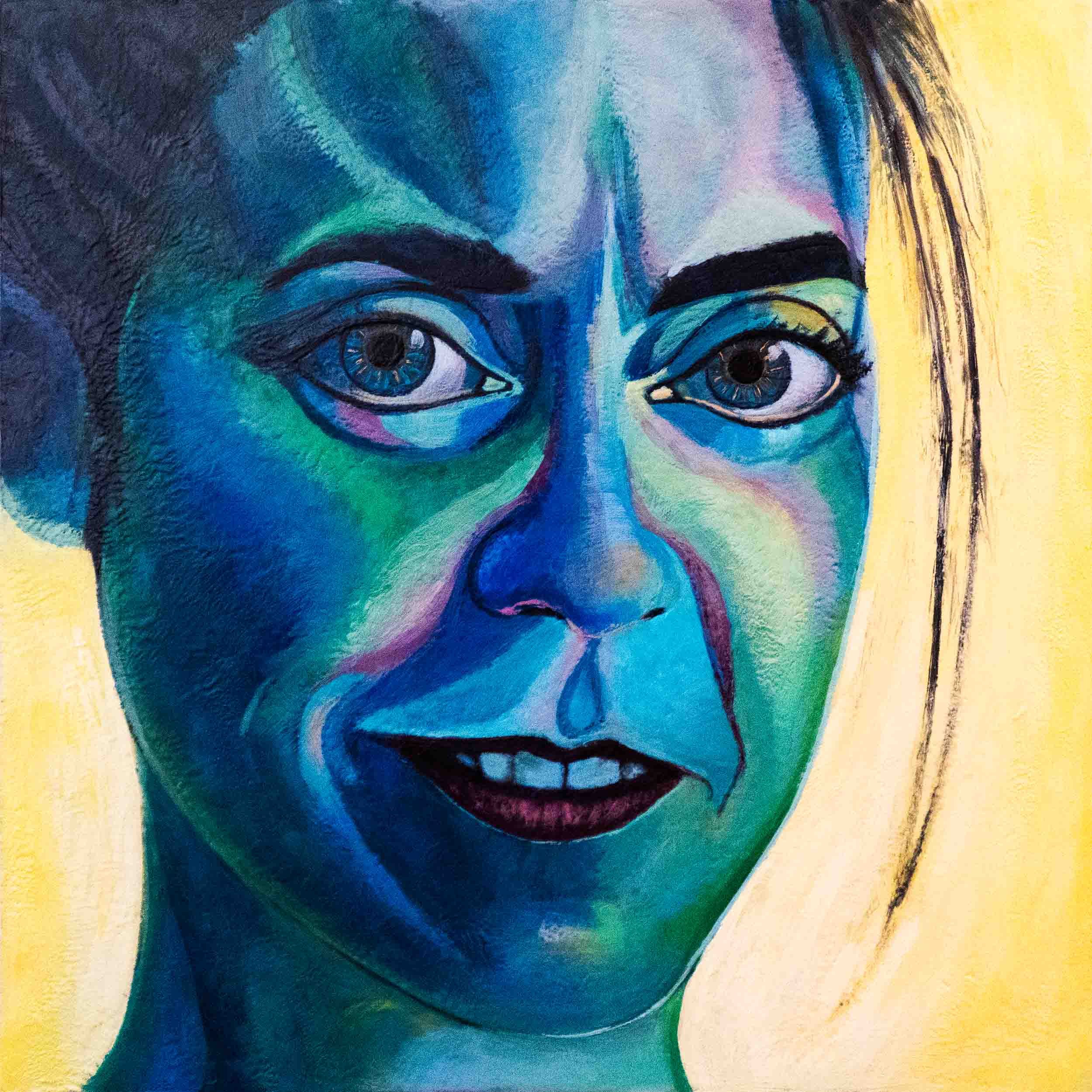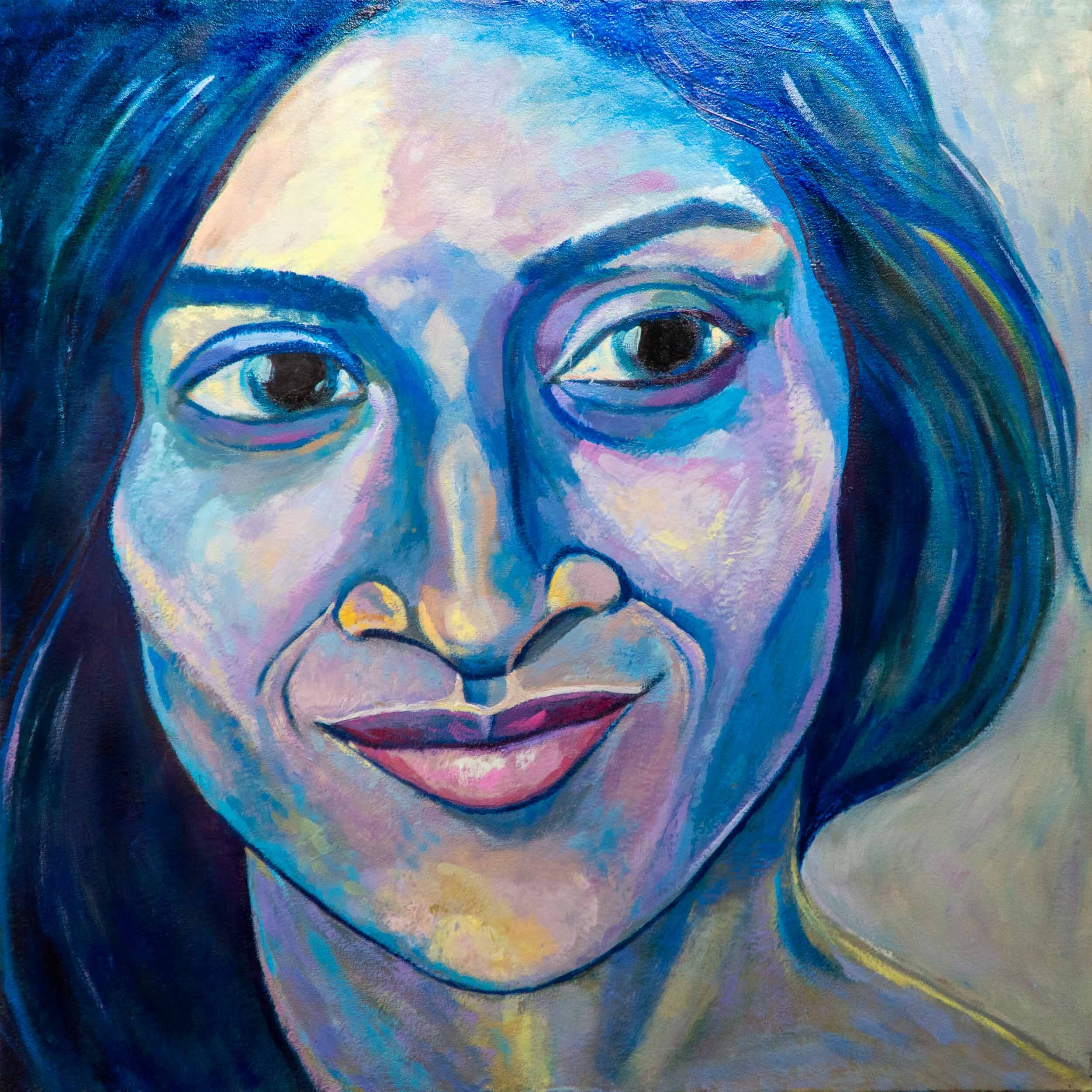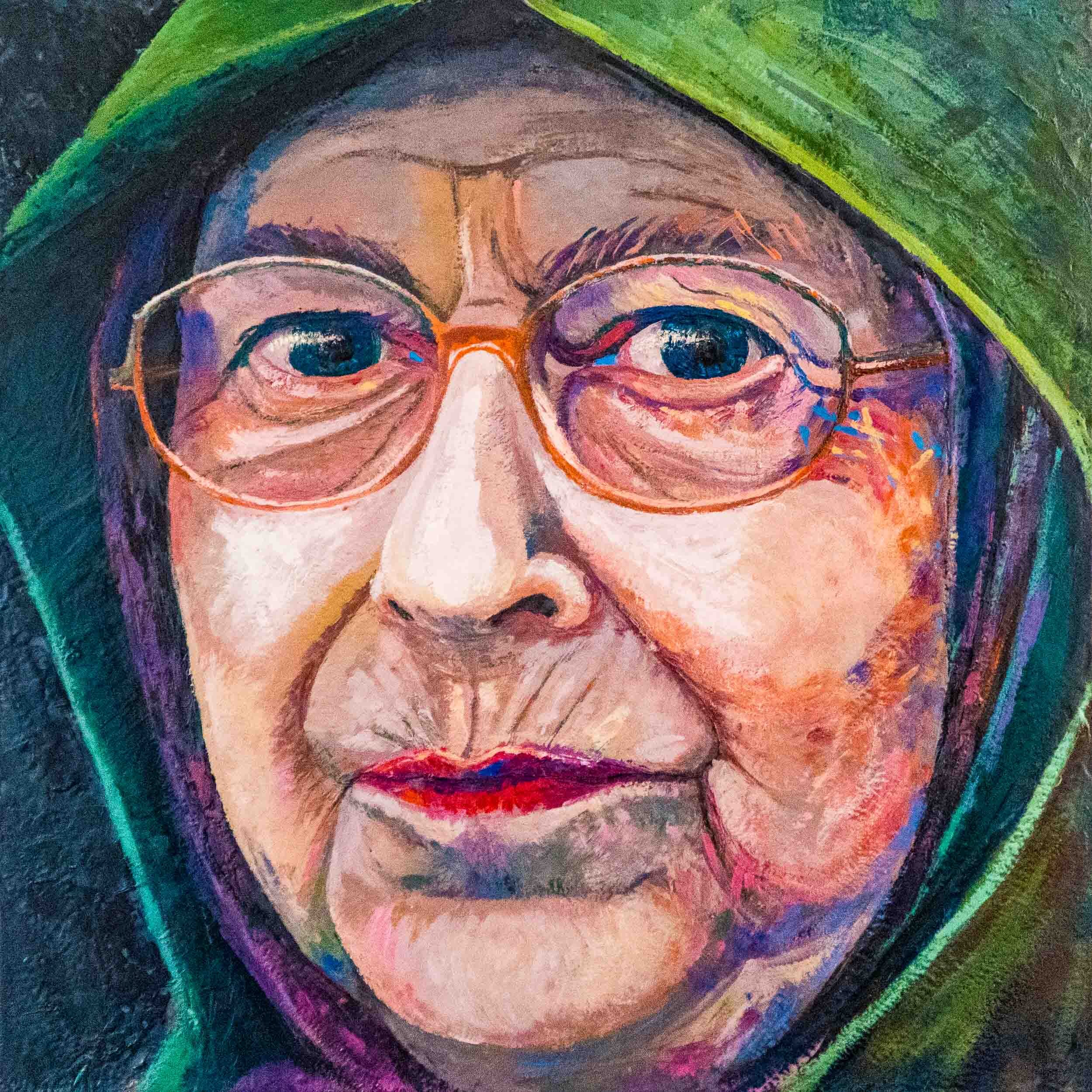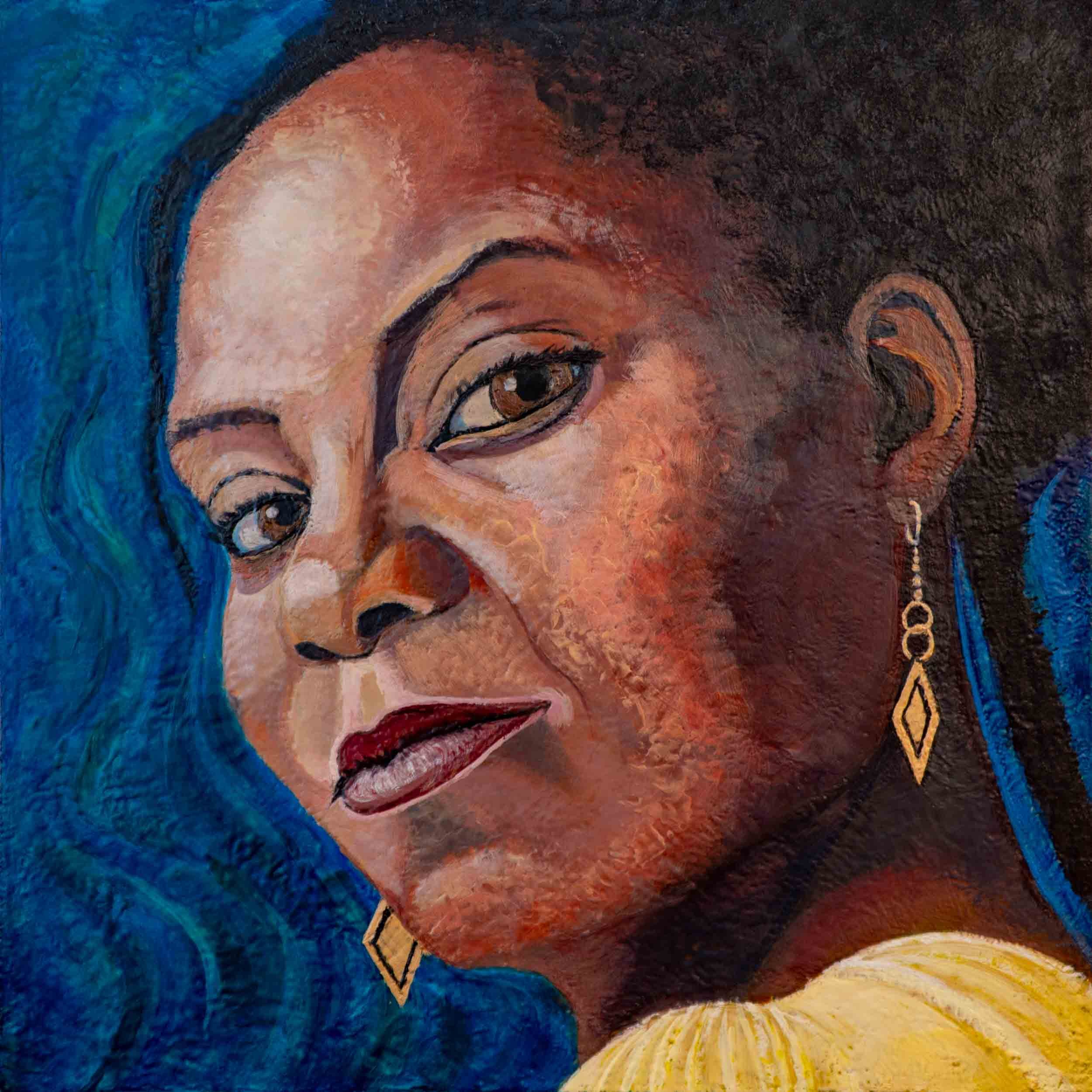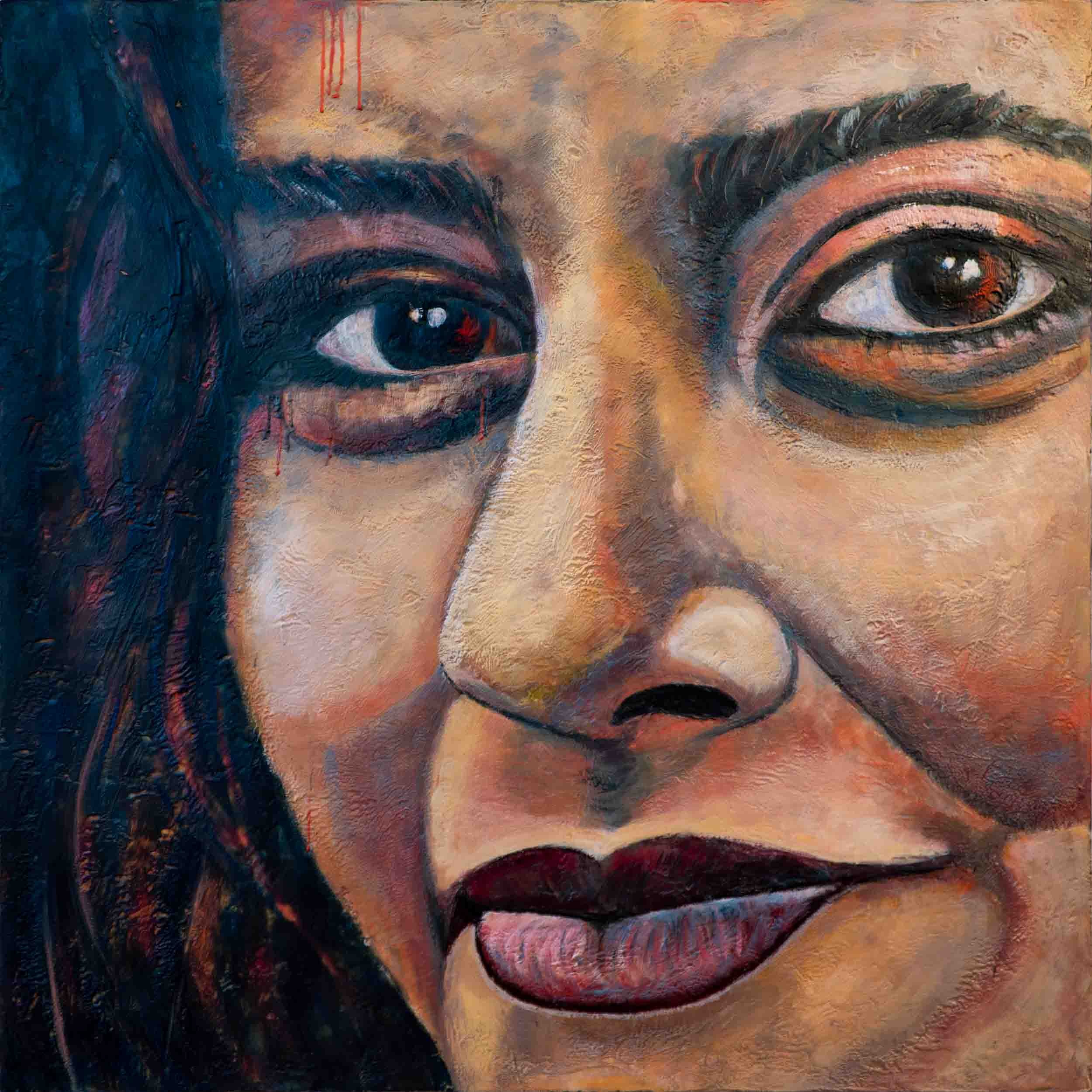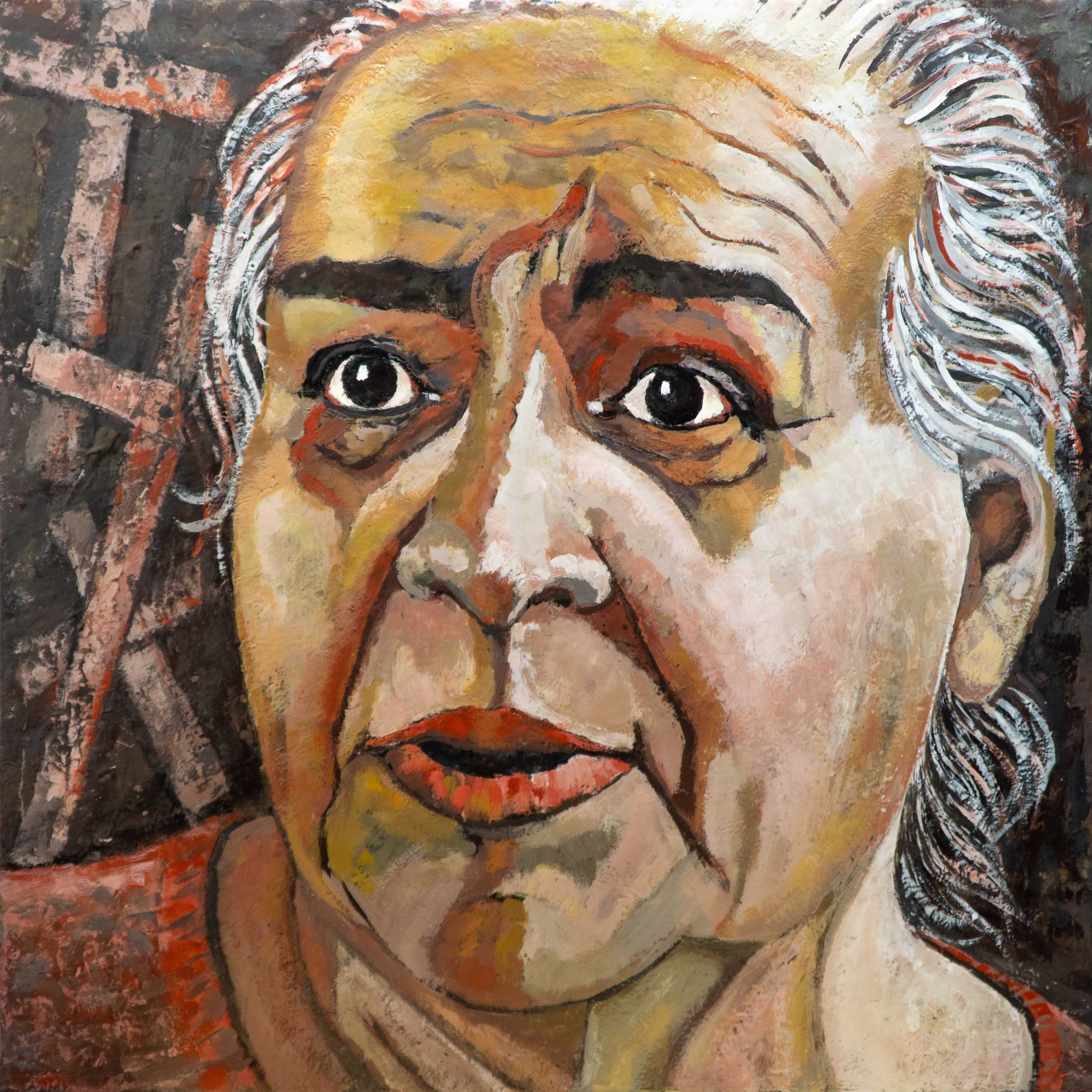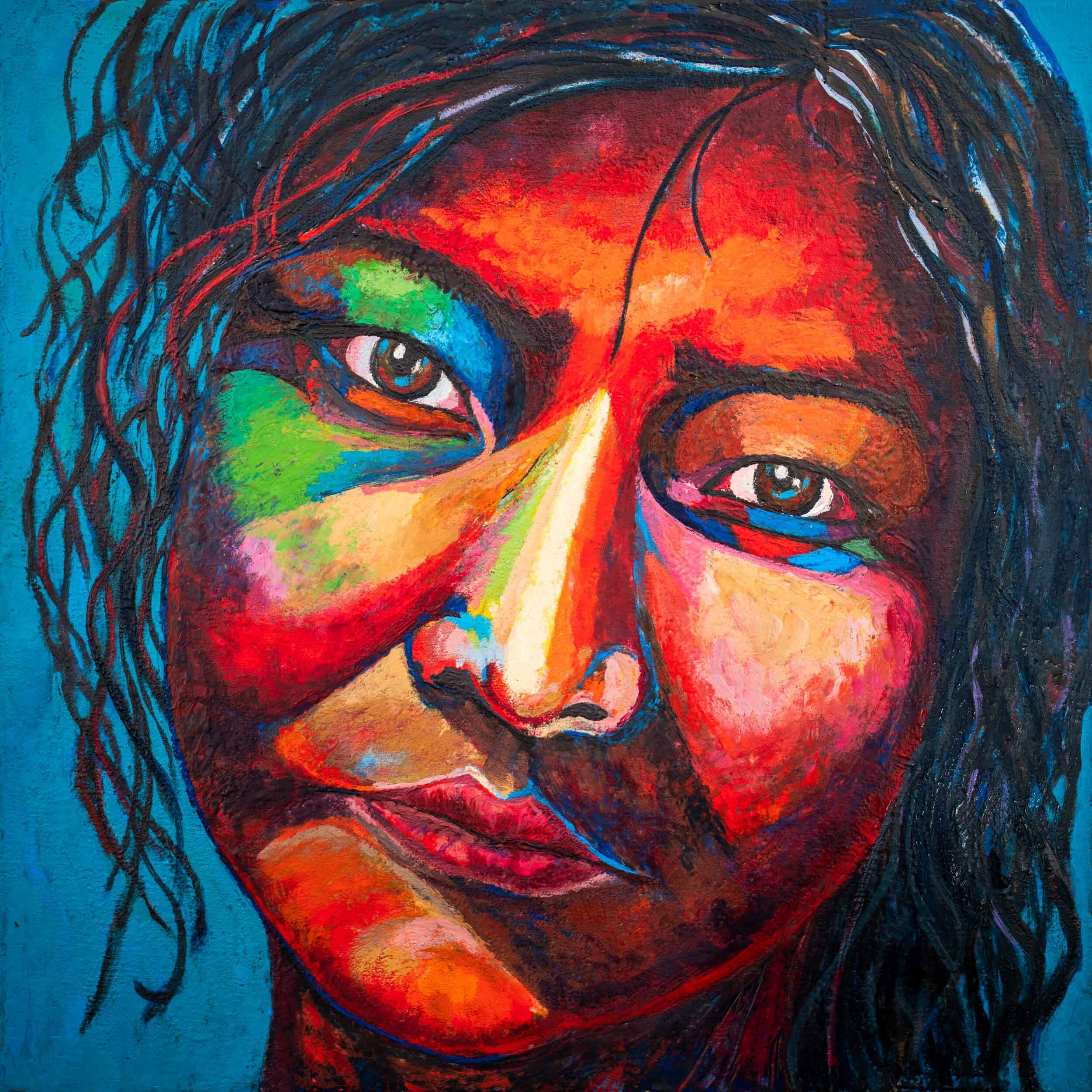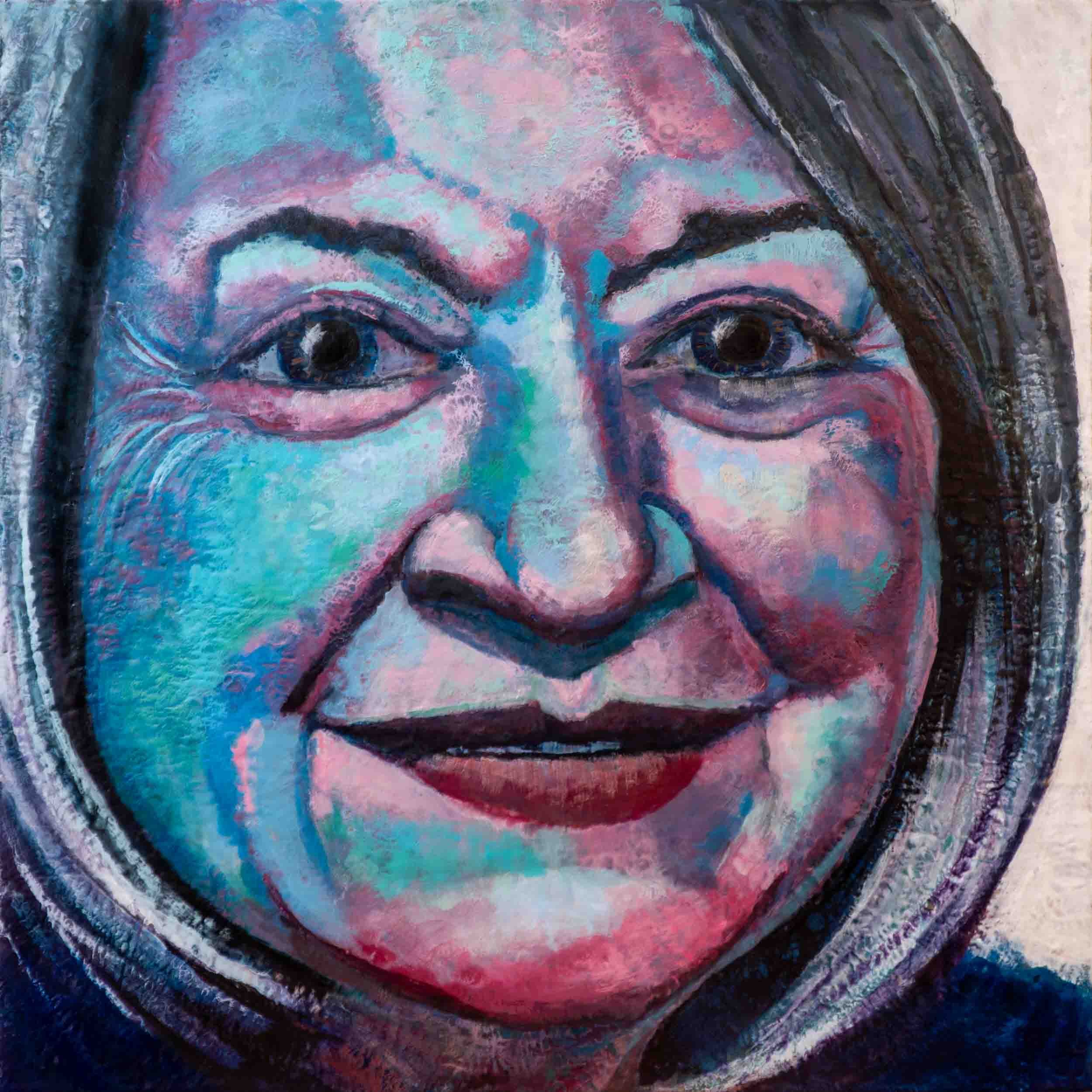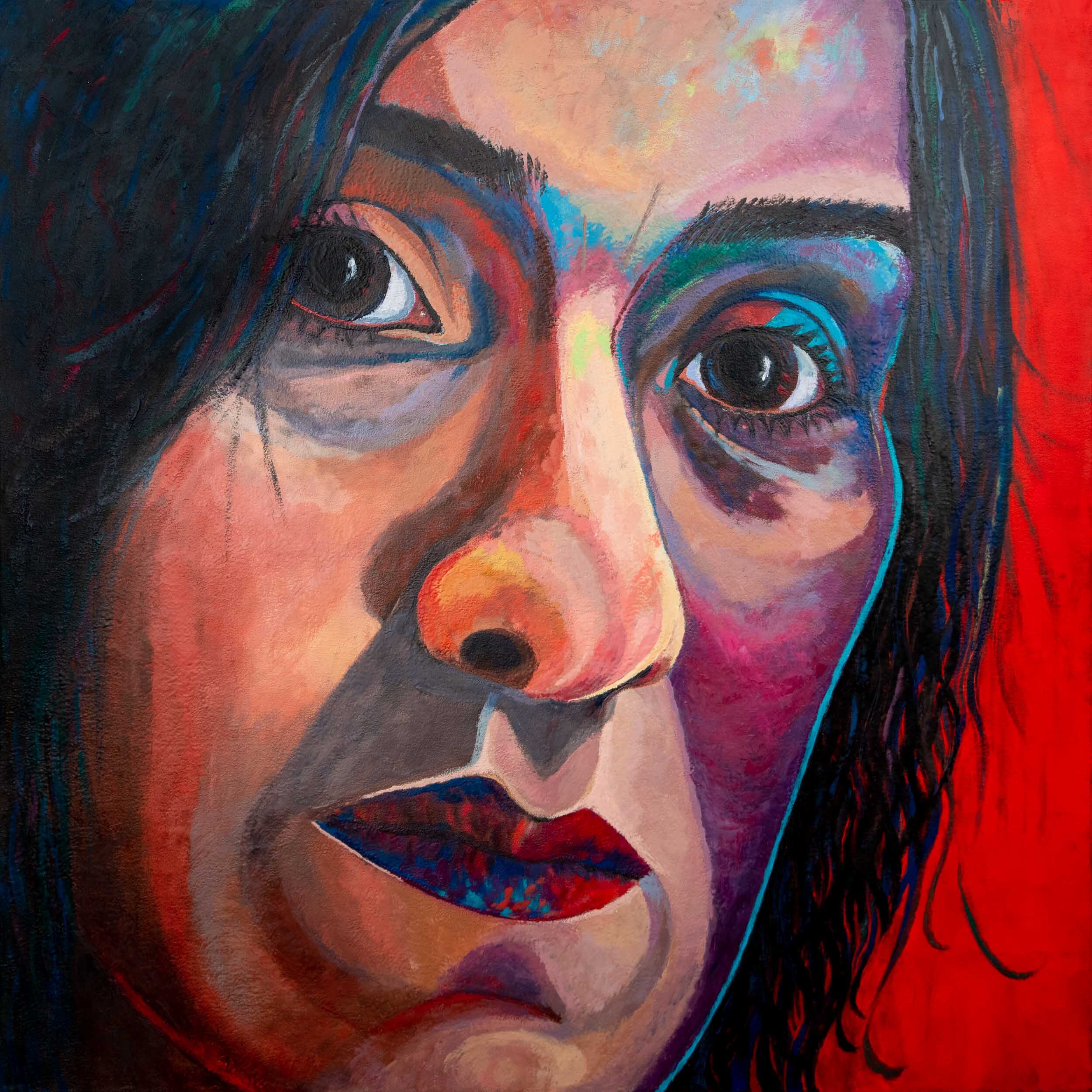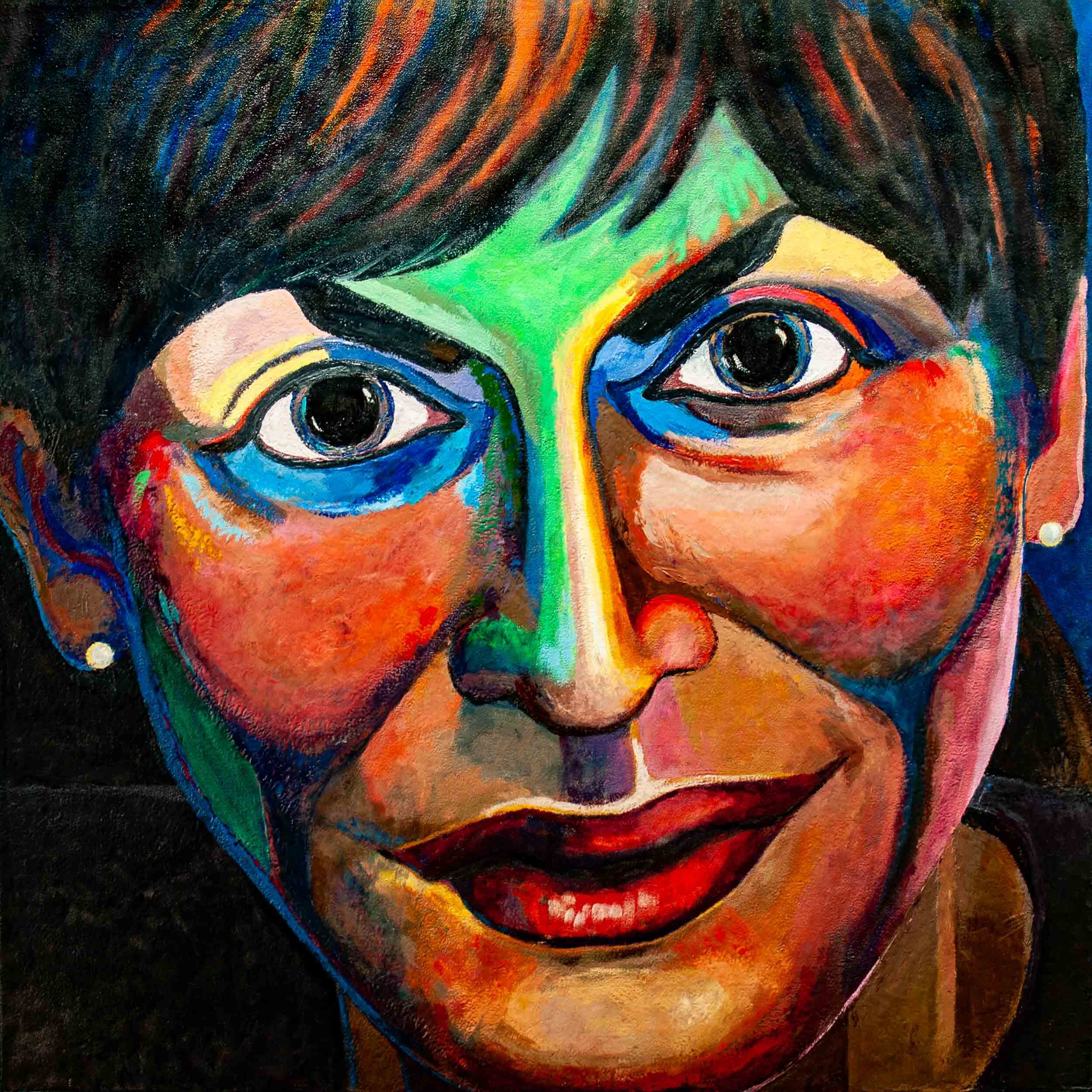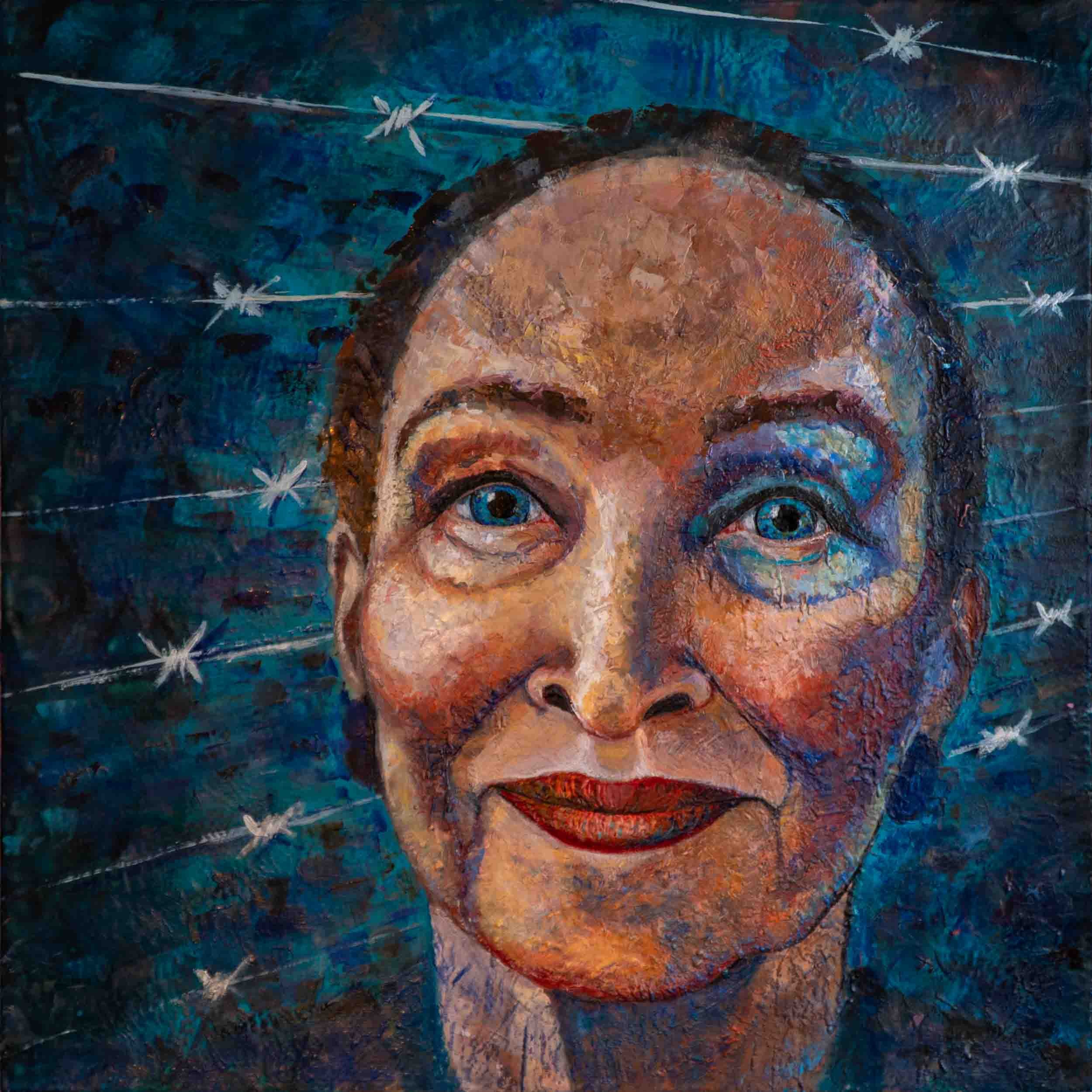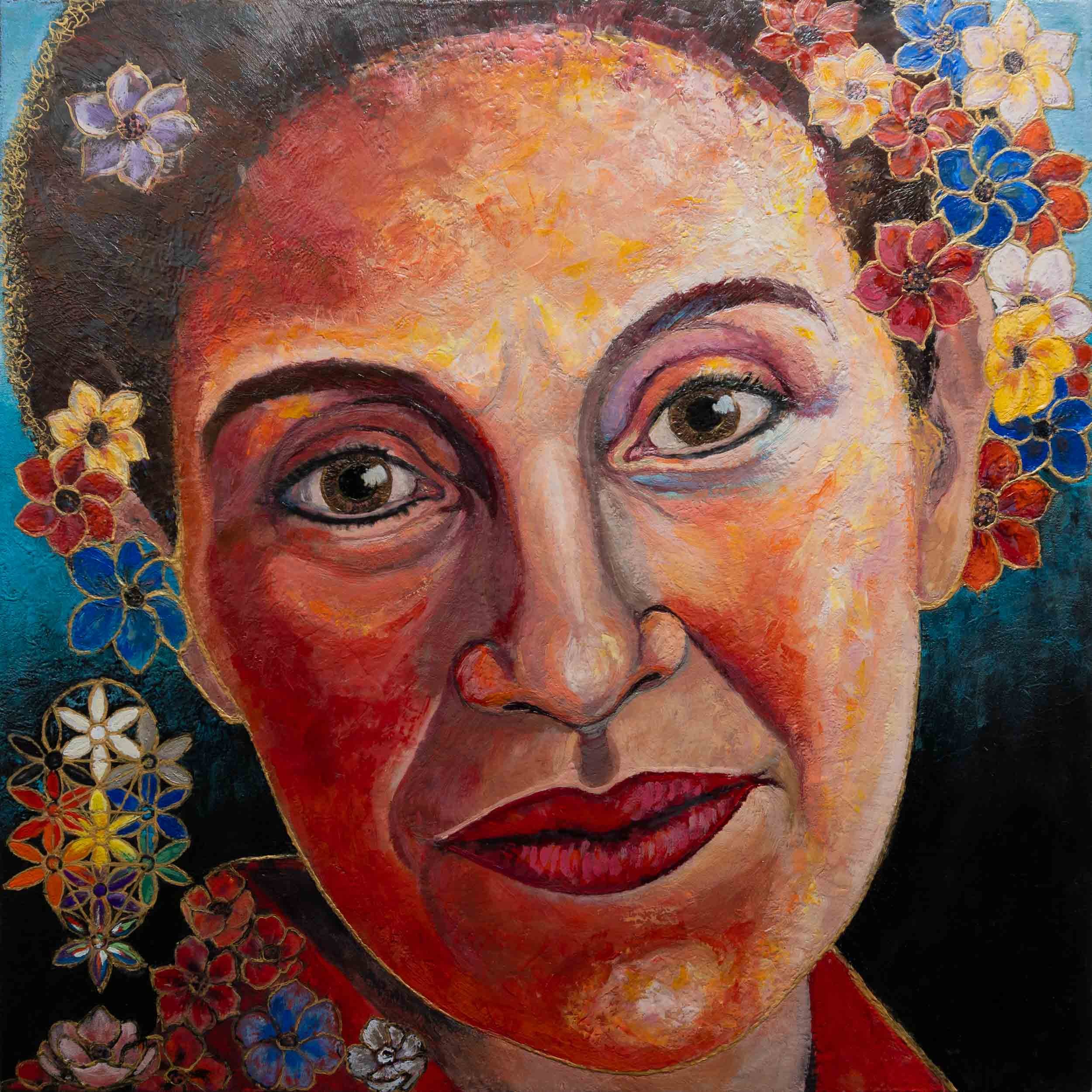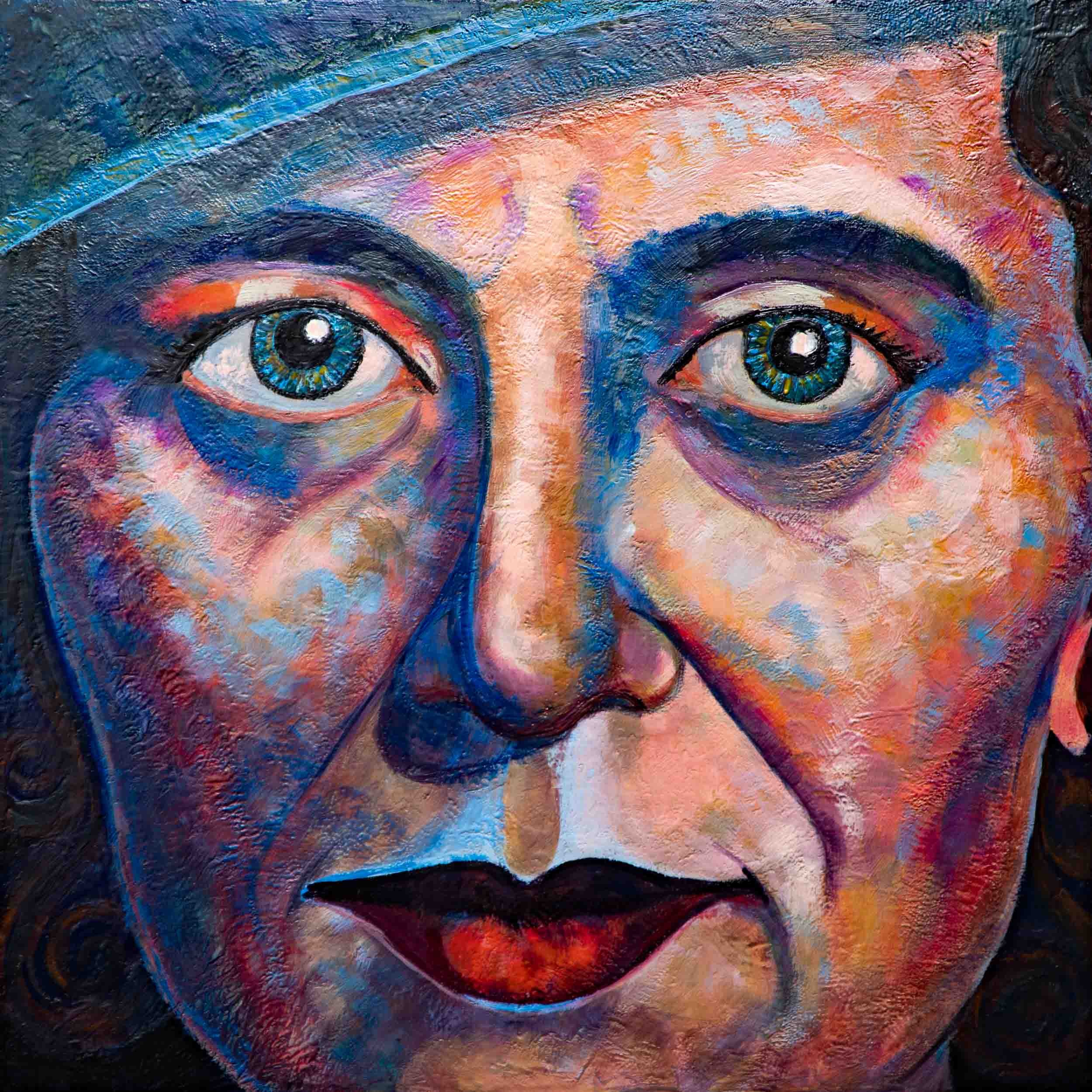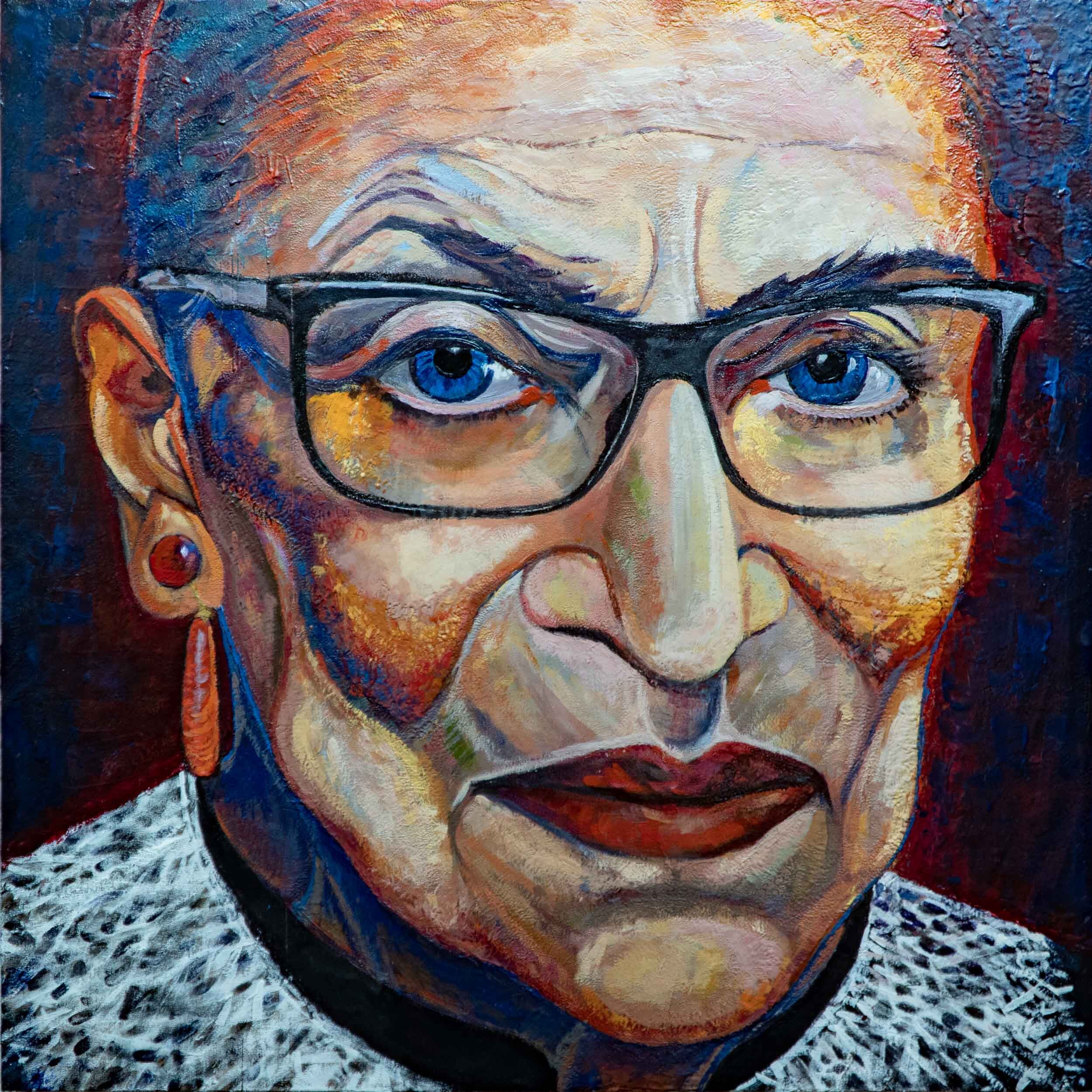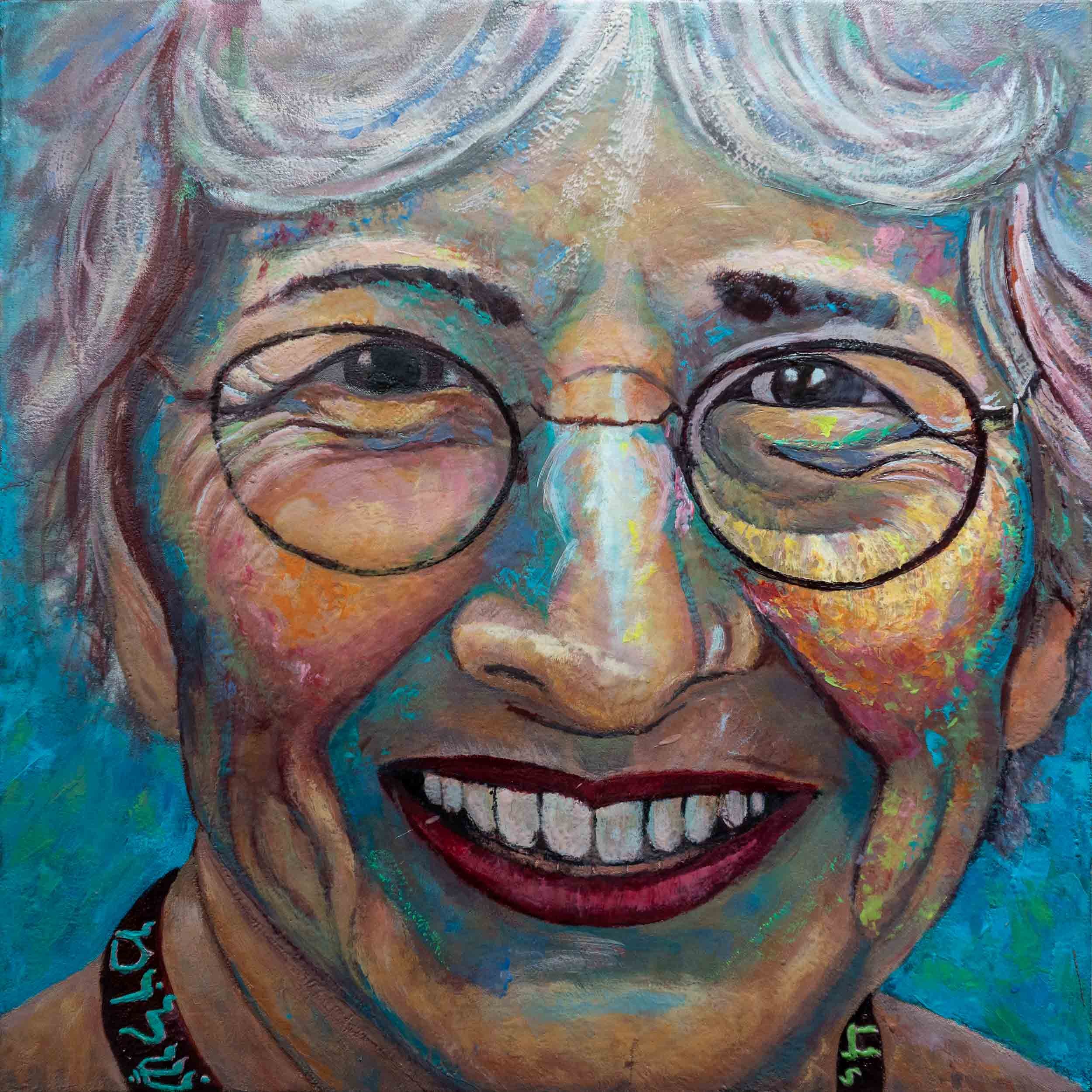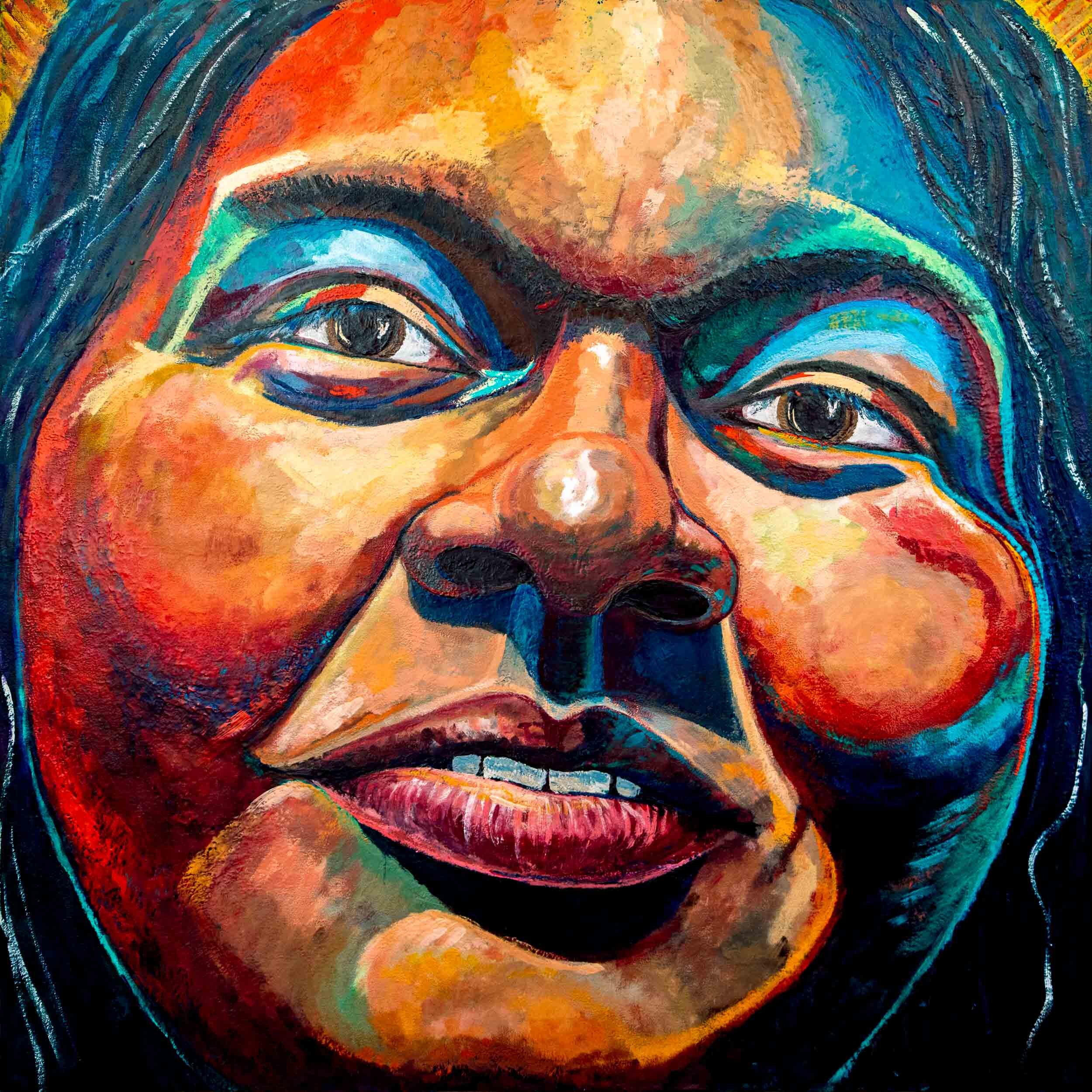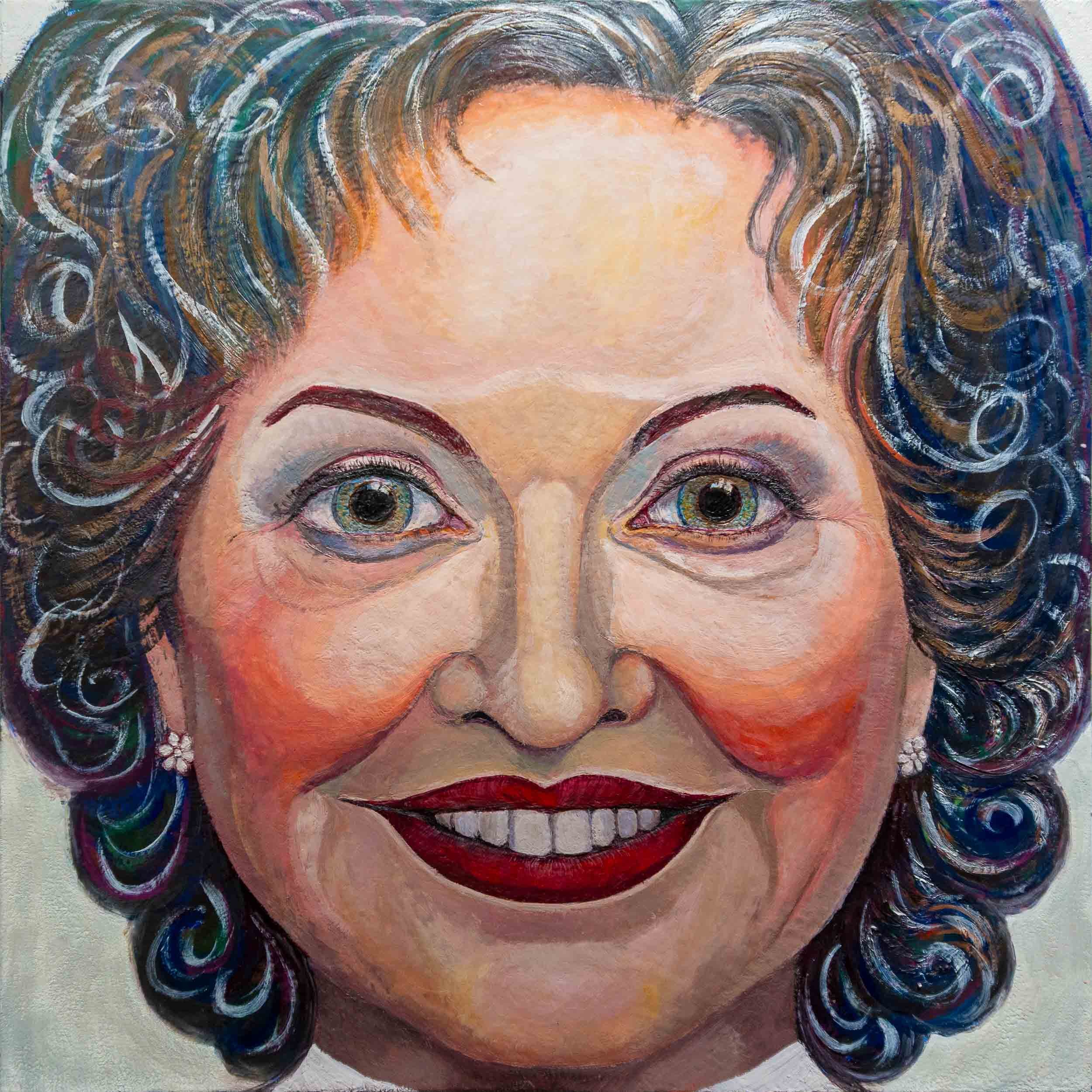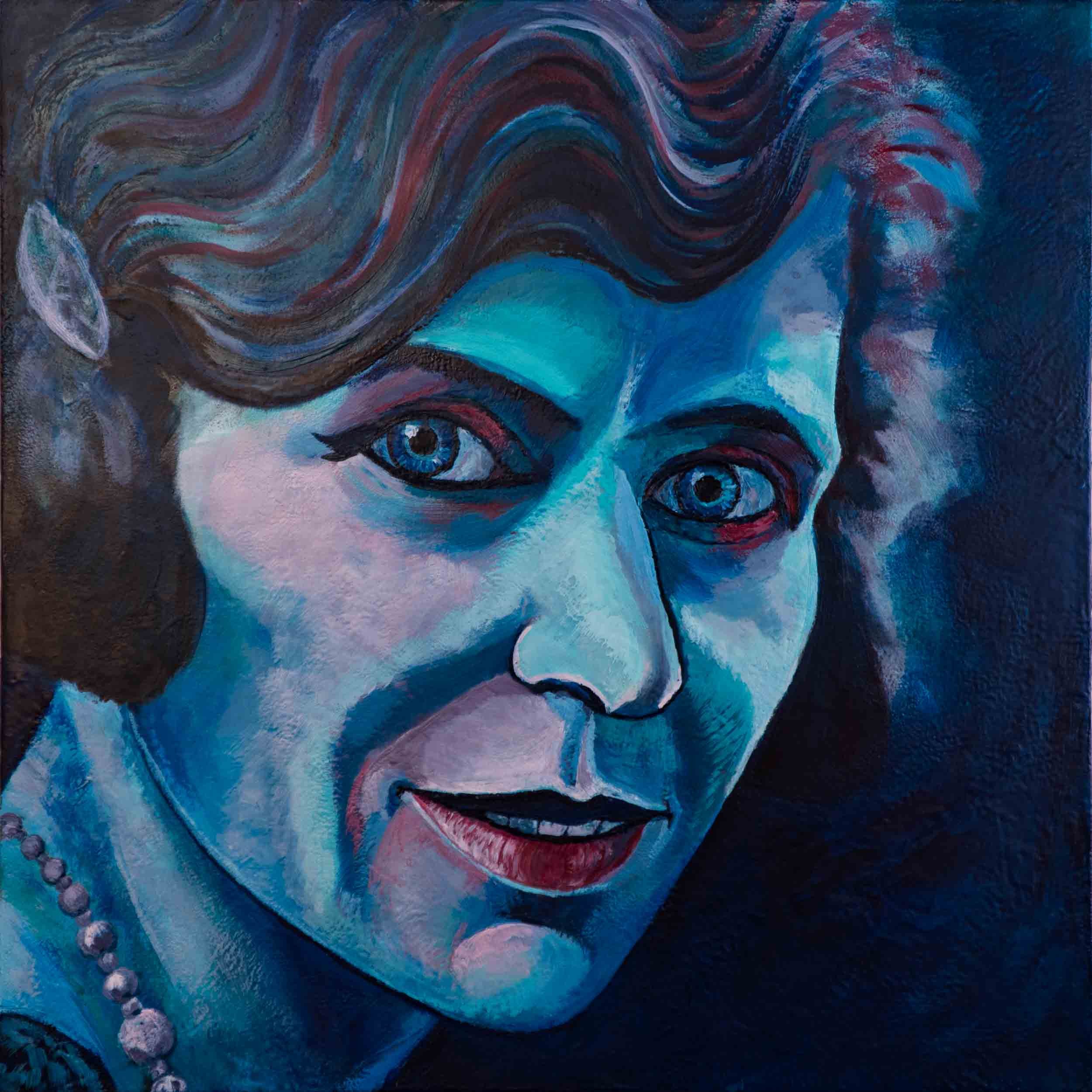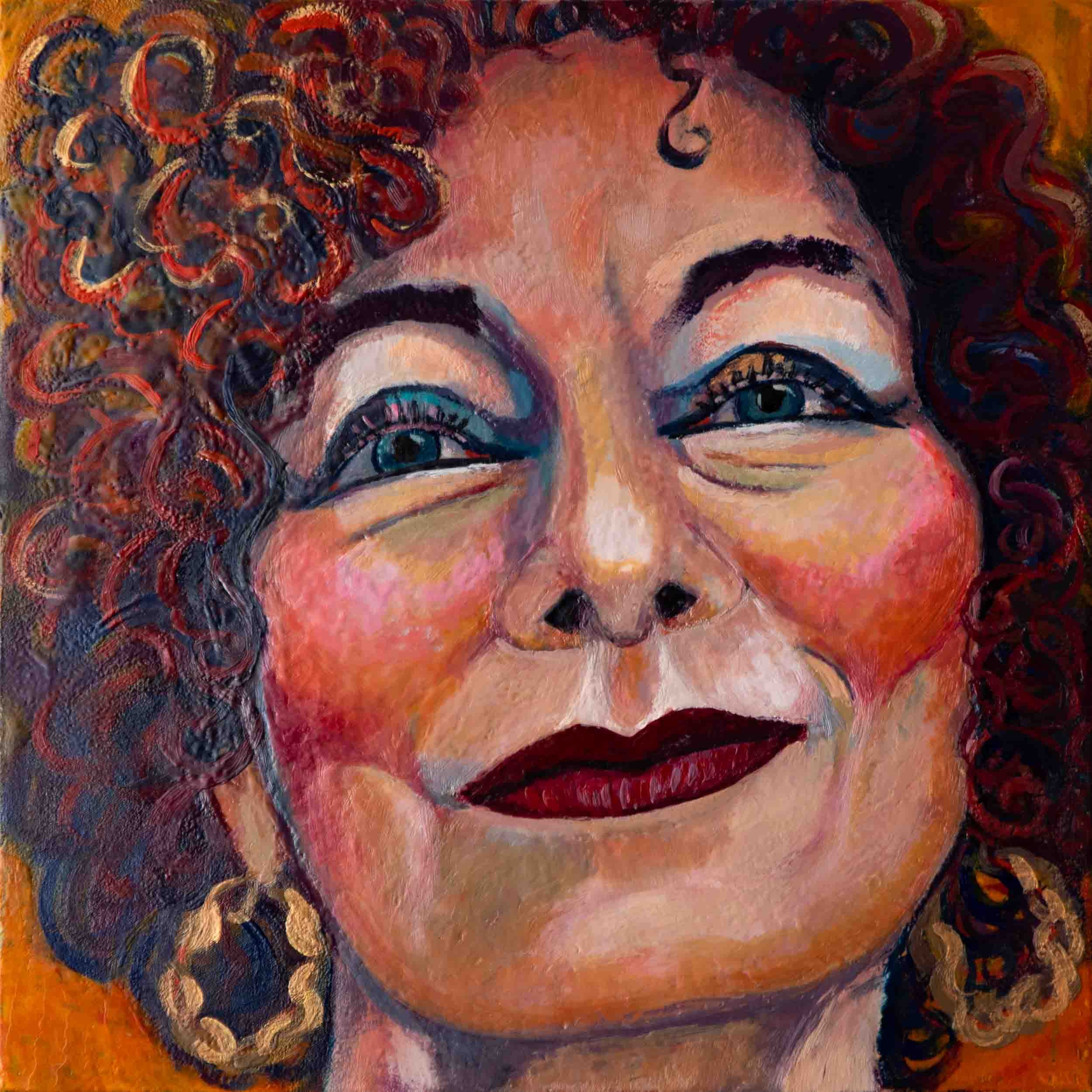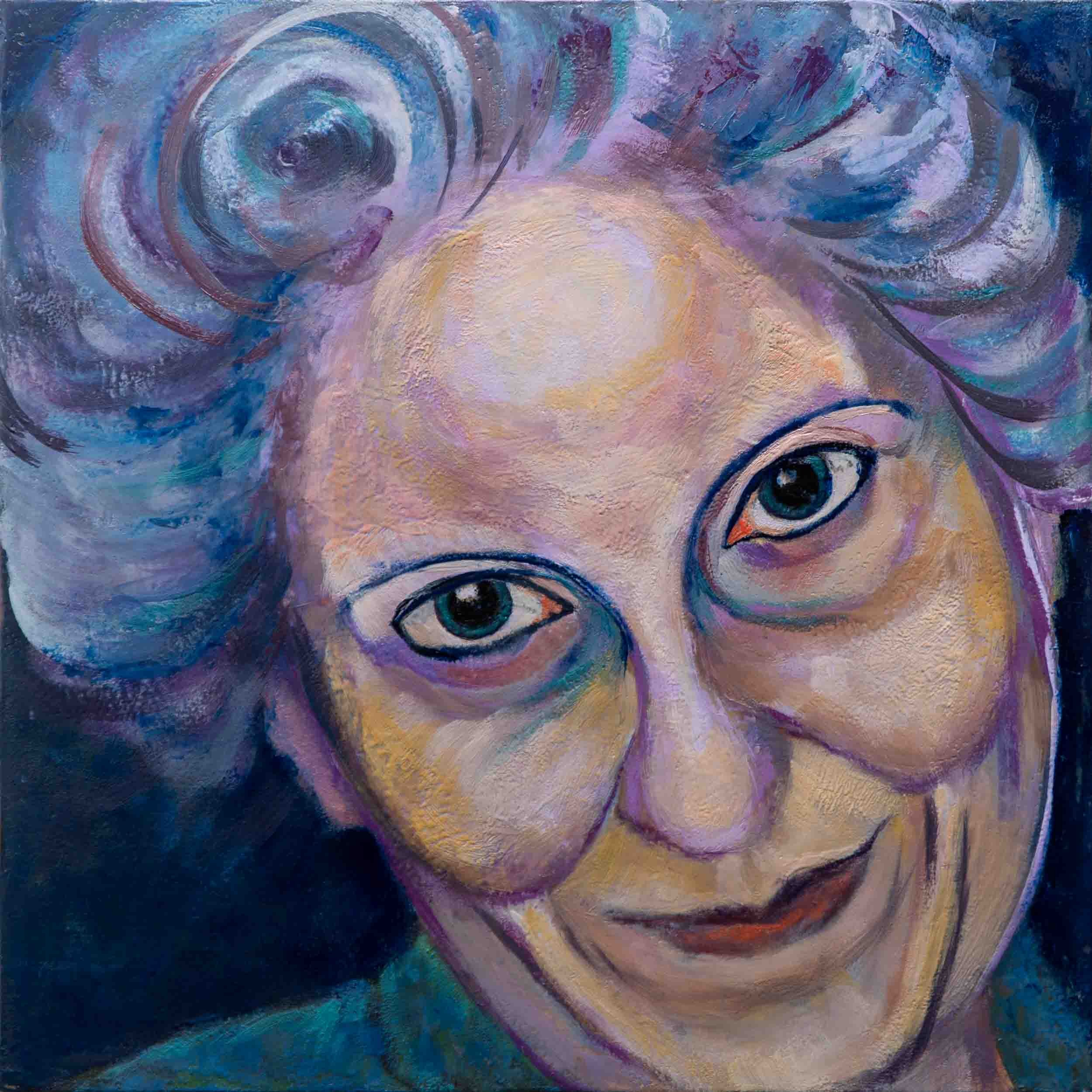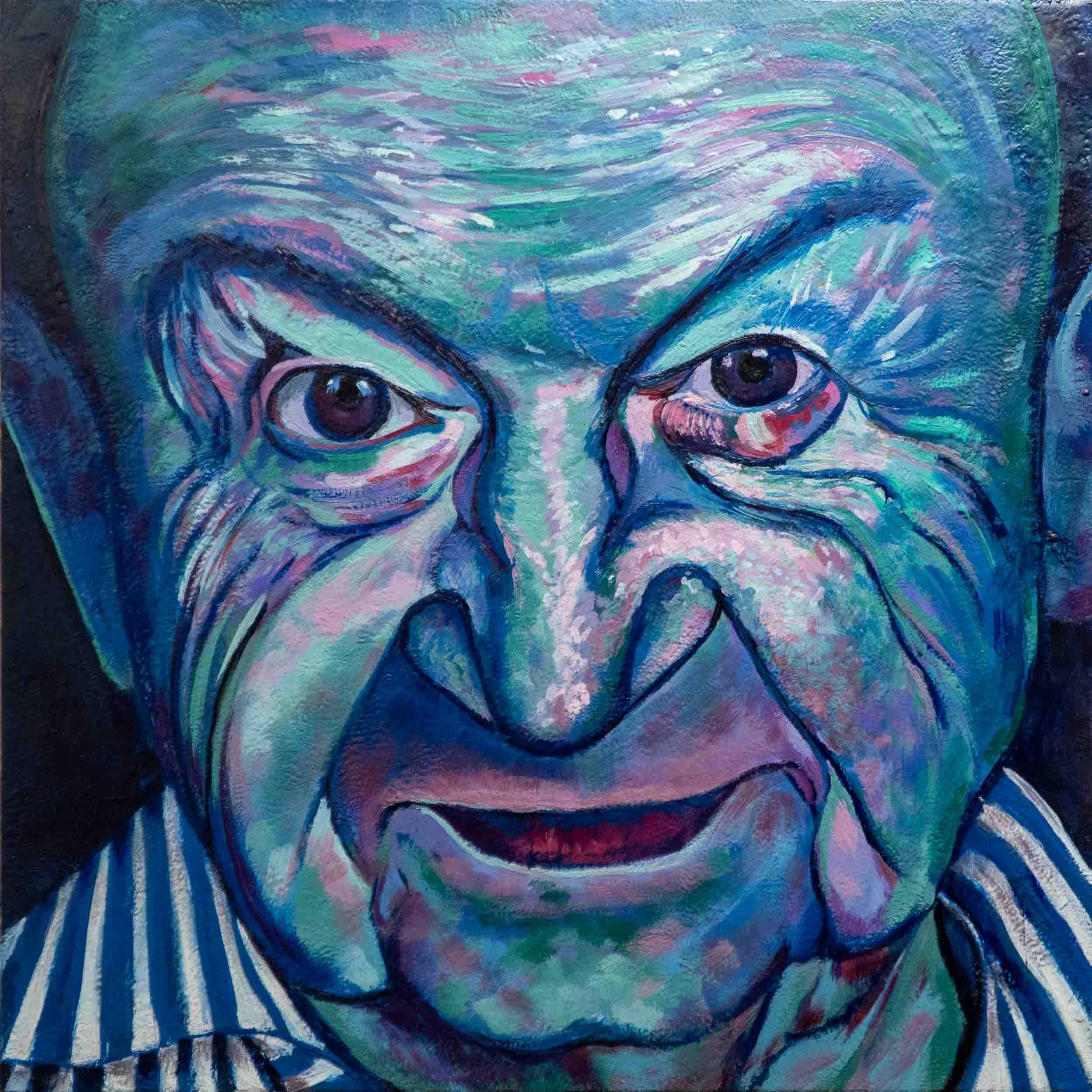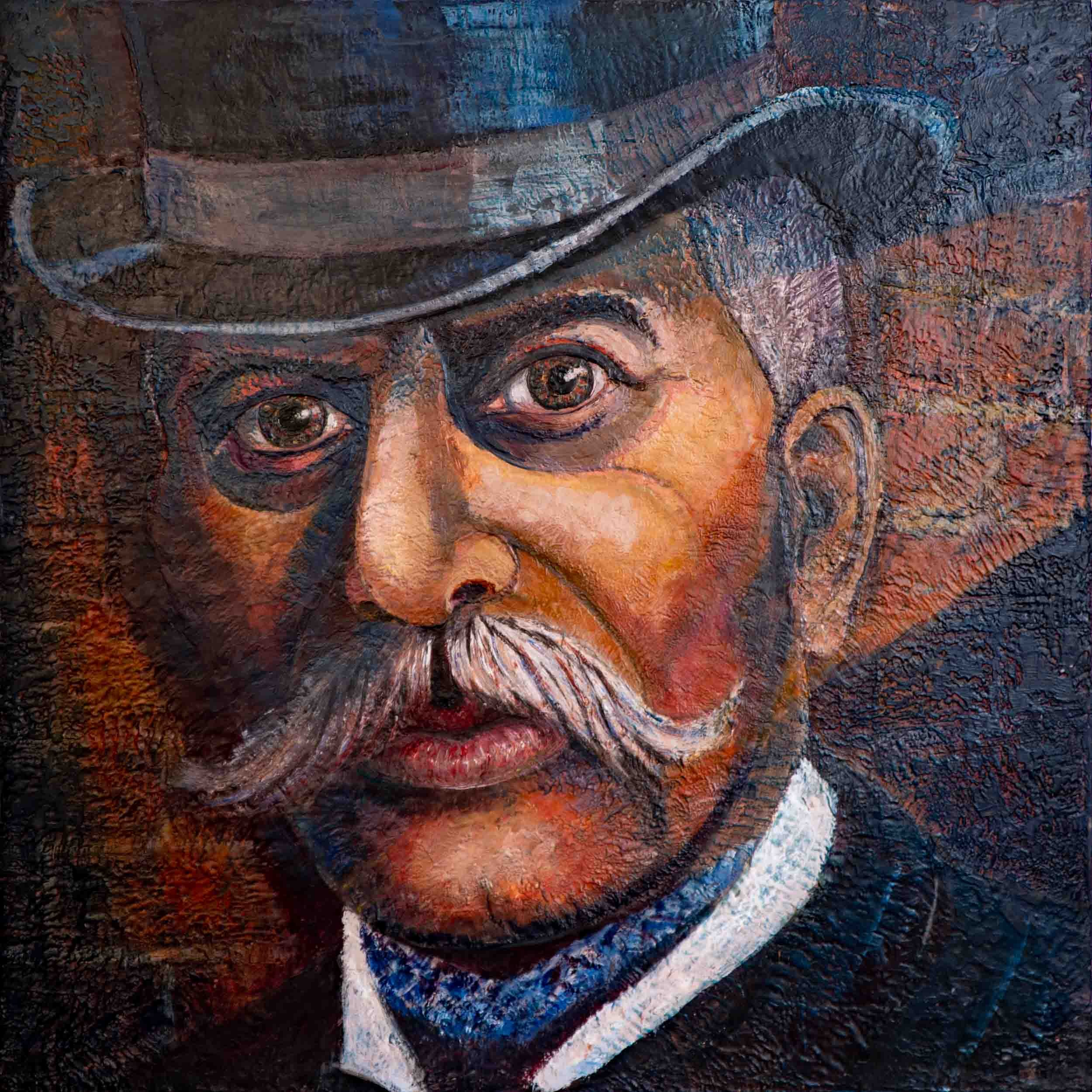Amanta Scott: CHANNAH’S FIRE
Holy Blossom Temple 2024












































Paintings in the exhibition
Channah, daughter of Mattathias, is known as the instigator of the Maccabean Rebellion. Channah stood up to protect herself and her sisters from systemic rape, and dared to say aloud what everyone knew but would not say. Her words and actions inspired her people to rise up against oppression.
Celebrating those who dare to speak out, who inspire others to rise up against injustice and who work to make the world a better place— this series is created in honour of Channah and other outstanding individuals who have crossed my path.
The story of Channah is celebrated by Sephardic Jews in North Africa, the Middle East, Greece and Spain, from whence my ancestors came. There, it was customary for Yemenite Jewish women to wear clothing decorated with bells and, after the lighting of the candles, they would go out into the street and play music with hand bells to celebrate the miracle of Hannukah and to rejoice in sisterhood.
Channah’s Fire stems from my installation Eyeing Medusa, named for the archetypal wronged-woman of Greek mythology. Torn from her spiritual path, raped, blamed, banished and ultimately beheaded, Medusa’s story echoes that of countless women throughout history. While her monstrous rage and debilitating grief petrifies all who look upon her, viewing Medusa is possible via a mirror. Eyeing this ancient wild/wise woman requires facing our own fears, culpability and difficult questions— so that we may recognize and stop perpetuating unhealthy beliefs and behaviours. Ultimately I believe that my work can shift perspectives and change historically toxic narratives by focusing on respect, empowerment and self-actualization.
THE STORY OF CHANNAH
The following excerpts from the story of Channah derive from an article by Prof. Ray Rachel Adelman, Associate Professor of Hebrew Bible, at Boston’s Hebrew College.
The Hybrid Scholion on Megillat Taanit tells that the Greeks exercised “the Right of the First Night”, the right to rape the brides on the night before their marriage to their husbands. Because of this people abstained from weddings or married in secret. However the immanent nuptials of Mattathias’ daughter proved too prominent to conceal. Channah takes matters into her own hands and inspires her people to rise up against oppression. The Sheiltot of Rav Aḥai Gaon (26 in the Mirsky ed.) tells a version of the story published in modern collections as Midrash Ma‘aseh Chanukah (Homily about What Happened on Chanukah) or simply Midrash Le-Chanukah (A Homily for Chanukah).
,והיו יונים מתעללות בבתולות ישראל ונהגו בדבר הזה שלש שנים ושמונה חדשים, עד שבא מעשה של בת מתתיהו כהן גדול שנשאת לבן חשמונאי ואלעזר היה שמו
כיון שהגיע יום שמחתה הושיבוה באפריון, וכשהגיע זמן הסעודה נתקבצו כל גדולי ישראל לכבוד מתתיהו ובן חשמונאי שלא היו באותו הדור גדולים מהם, וכשישבו לסעוד עמדה חנה בת מתתיהו מעל אפריון וספקה כפיה זו על זו וקרעה פורפירון שלה ועמדה לפני כל ישראל כשהיא מגולה ולפני אביה ואמה וחותנה
כיון שראו אחיה כך נתביישו ונתנו פניהם בקרקע וקרעו בגדיהם, ועמדו עליה ,להרגה
And the Greeks would sexually abuse the daughters of Israel, and this went on for three years and eight months, until the act of one daughter of Mattityahu, the High Priest who was engaged to a Hasmonean son, and Elazar was his name.
When the day of the celebration came, they sat her on a palanquin, and when the time for the feast came, all the elders of Israel gathered in honor of Mattityahu the High Priest and the son of Hashmonai, for there were none in that generation as great as them. When they sat down to eat, Channah, the daughter of Mattityahu, stood atop the palanquin and raised her arms and ripped her garment and stood before all of Israel exposed, and before her father and mother and her father in law.
When her brothers saw this, they were ashamed and bent their heads to the ground and tore their clothing and stood up to kill her.
The extreme reaction of Channah’s brothers derives from her status as the daughter of a priest (bat kohen or kohenet), whose sexuality must be strongly guarded (Lev. 21:9). Arguing in the fashion of a learned rabbinic Jew, Channah points out that while her brothers are excessively zealous for her public “modesty”, they can somehow live with the private reality that she will be raped after the ceremony by the Greek governor.
אמרה להם שמעוני אחיי ודודיי, ומה אם בשביל שעמדתי לפני צדיקים ערומה בלי שום עבירה הרי אתם מתקנאים בי, ואין אתם מתקנאים למסרני ביד ערל
להתעולל בי! הלא יש לכם ללמוד
משמעון ולוי אחי דינה שלא היו אלא שנים וקנאו לאחותם והרגו כרך כשכם ומסרו נפשם על ייחוד של מקום ועזרם ה' ולא הכלימם, ואתם חמשה אחים יהודה יוחנן יונתן שמעון ואלעזר, ופרחי כהונה יותר ממאתים בחור, שימו בטחונכם על המקום והוא יעזור אתכם .'שנאמר כי אין מעצור לה' להושיע וגו
She said to them: “Listen my brothers and my uncles, now that I have stood before you righteous ones, naked with no sin upon me, you are seized with zeal against me, but you were not so zealous on my behalf, sending me to that uncircumcised one [so he could] abuse me. Should you not learn from Shimon and Levi the brothers of Dina (in Gen. 34), who were only two, yet were zealous for their sister and killed the city of Shechem and risked their lives for the integrity of God, and God came to their assistance and did not destroy them. Yet you are five brothers--Yehuda, Yoḥanan, Yonatan, Shimon, Elazar—and over two hundred young priests! Place your trust in God and God will assist you, as it is said: “...for nothing can hinder the LORD from saving by many or by few.” (1 Sam. 14:6).
Channah exposes their hypocrisy: “If you were willing to kill me on account of public nudity, should you not be willing to kill the Greeks on account their intention to rape me?” This, and her subsequent prayer, inspires them to action.
ופתחה פיה בבכיה ואמרה רבש"ע אם לא תחוס עלינו חוס על קדושת שמך הגדול שנקרא עלינו ונקום היום נקמתנו
And she opened her mouth, crying, and said: “Lord of the Universe, if you will not do this for our sake, do it for the holiness of your great name that is upon us, and we will rise up in our vengeance.
Channah’s speech galvanizes their patriarchal sense of pride and honour, deflecting them away from punishing her for exposing herself into protecting her from potential sexual violation. Both in her rhetoric to the men and in her prayer to the Lord of the Universe, God’s sacred name is contingent on the integrity of the daughter’s body. Her plea motivates her brothers to the proper path:
באותה שעה נתקנאו אחיה ואמרו בואו ונטול עצה מה נעשה, נטלו עצה זה מזה ואמרו בואו ונקח אחותינו ונוליכנה אצל המלך הגדול ונאמר לו אחותנו בת כהן ,גדול ואין בכל ישראל גדול מאבינו ,וראינו שלא תלין אחותינו עם ההגמון ,אלא עם המלך שהוא גדול כמותינו ונכנסנו עליו ונהרגהו ונצא, ונתחיל אח"כ בעבדיו ובשריו, והשם יעזרנו
'וישגבנו, נטלו עצה וכו
,ועשה להם הקב"ה תשועה גדולה
ושמעו בת קול מבית קדש הקדשים: כל .ישראל נצחו טליא באנטוכיא
At that moment her brothers were seized with zeal on her behalf and they said: “Let us go and get advice as to what to do.” They consulted with one another and said: “Let us take our sister and we will go to the great king and we will tell him: ‘Our sister is the daughter of a high priest, and there is no one in Israel greater than,our father, and we see that that she should [not] lie with governor but, rather, with the king, who is as great as we are.’ And then we will enter the palace] and we kill him and leave. We will start with his servants and relatives, then God will help us and exalt us.”
And God made a great salvation for them, and they heard a divine voice [bat qol] come out of the Holy of Holies, saying: “All Israel, the young priests (tali’a, lit. “the lamb”) have been victorious against Antiochus [Antokhya].”
“Throughout this tale, the woman’s body serves as the site of adjudication for the collective honor of Israel and the integrity of God’s name. A female Trojan Horse, Channah becomes key to defeating the Greek overlords from within. The passage ends with the victorious cry of a bat qol, “a divine voice,” literally a “daughter’s echo” from Heaven, to the high priest: Antiochus has been defeated. So the Holy of Holies remains intact, private, exclusively accessible to the High Priest on Yom Kippur, only because Channah was willing to expose herself, to challenge her brothers’ hypocrisy, and galvanize them to action. The integrity of the Temple is mirrored in the integrity of the daughter.”
— Prof. Ray Rachel Adelman

